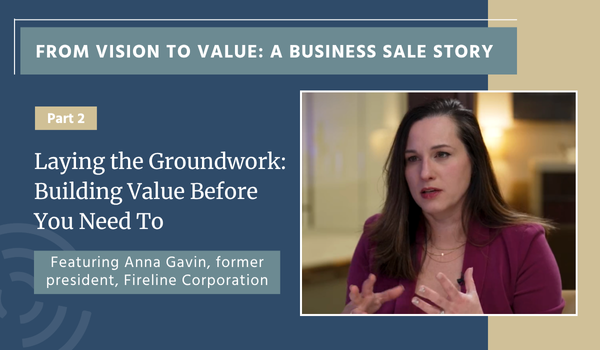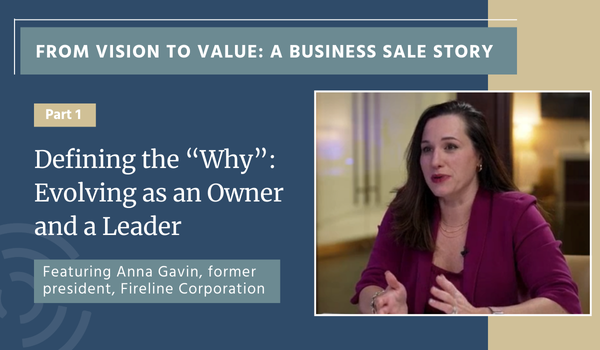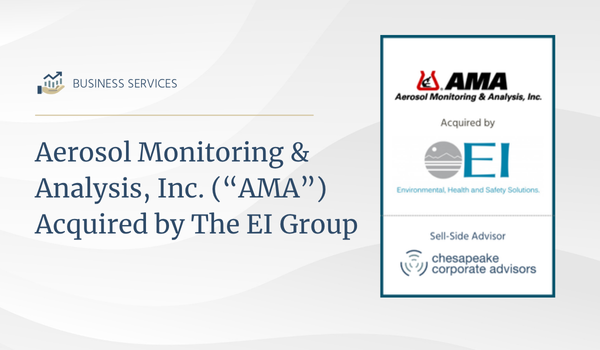This article was originally published on December 1, 2023 on the I-95 Business website.
If you are considering selling the business you have worked hard to build, you want a smooth sale process and an optimal outcome. One vital tool that can help you achieve both goals is a sell-side Quality of Earnings (QofE) report.
Why You Need a Sell-Side QofE When Selling Your Business
At a high level, a sell-side QofE report analyzes and validates your business’s profitability, assessing both revenue and costs. Sell-side QofE reports have become more common in recent years as sellers better understand its value to the sale process.
Business owners who are serious about selling the company will engage a firm to perform a QofE before they go to market. By having the company’s financials vetted by a qualified accounting firm early in the process, you gain confidence in your numbers and assurance that they will be less open to scrutiny during negotiations. Investing in a sell-side QofE report upfront also enables you to include validated financials in the Confidential Information Memorandum (CIM) that your investment bankers will prepare and use to market your business. Hiring a reputable firm to perform a QofE is also a strong signal to the market that you are a serious and credible seller, which can have the effect of generating increased interest in your business.
What a QofE Includes
Two of the most important components of a QofE are the following:
Adjusted EBITDA. Since EBITDA (earnings before interest, taxes, depreciation and amortization) is the primary driver of deal value, buyers want to see this figure validated and adjusted for certain elements. The goal is to “normalize” cash flow by removing any conditions that are likely to change post-transaction. For example, adjusted EBITDA would add back a one-time, non-recurring professional services cost or subtract revenue that was derived from operations that have since been discontinued.
Net Working Capital. This figure helps the buyer determine if the business is operationally efficient and adequately funded. If the QofE shows your company has significant short-term liabilities and insufficient net working capital to cover them, a buyer may negotiate net working capital more aggressively.
Most QofE reports also include a brief company overview, selected financial highlights and exhibits of the historical income statement and balance sheet.
How a Sell-Side QofE Benefits You as the Seller
While a buyer that reaches the Letter of Intent stage will hire its own advisors to perform a QofE on your business, investing in a sell-side QofE as the seller affords you three advantages that are invaluable to a successful transaction.
-
Credibility
A QofE is considered more justifiable than accountant-prepared financials that are only reviewed or compiled. In fact, while a sell-side QofE does not replace an audit, buyers view it with a comfortable level of credibility. The report prepared by an impartial, well-known third-party presents your company performance in a transparent and straightforward way, resulting in financials that are considered “clean.”
-
Due Diligence Preparation
As the saying goes, time kills all deals. The more prepared you are for due diligence and the fewer delays you encounter, the more likely your deal will close. Since this part of the sale process requires that you provide buyers with extensive financial reports, having a sell-side QofE in hand gives you a head-start, which speeds up and streamlines due diligence. In turn, it enables you to respond to buyers faster, avoid unnecessary hurdles, and keep the process moving toward a successful deal closing. By completing a sell-side QofE early, you are also less likely to experience accounting surprises that hamper negotiations. Instead, you will have time to address issues in advance, prepare for questions that will arise as buyers scrutinize your business and engage in productive dialogue.
-
Defensible EBITDA
While many factors influence deal value, it is primarily a function of your EBITDA times a multiple (a key metric in valuing a company for M&A). Your EBITDA should be as defensible as possible to reduce the odds the buyer will attempt to renegotiate the deal price during due diligence (known as re-trading) or pull out of the deal entirely. Since the sell-side QofE is considered a trustworthy source of information, it allows you to negotiate with the buyers with more certainty.
When you are ready to sell the business that you have spent years building, you want to achieve the best possible outcome. Investing in a sell-side QofE report is one of the tools to help position the company for a sale and improve the odds that you will complete a successful deal.
About Chesapeake Corporate Advisors
Chesapeake Corporate Advisors is a boutique investment banking and corporate advisory firm providing strategic advisory services (value creation) and investment banking services (value realization) to companies with revenues between $10 million and $200 million.





